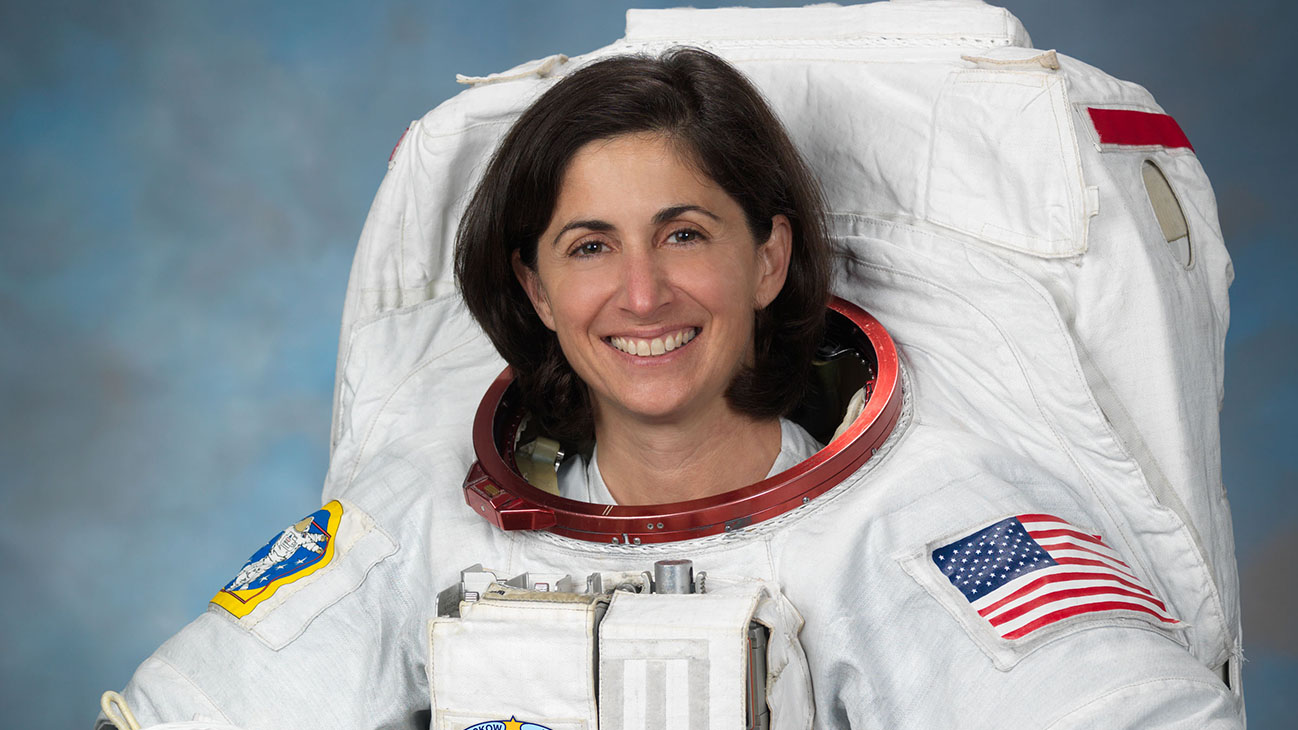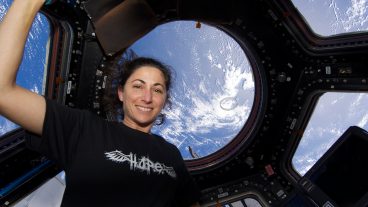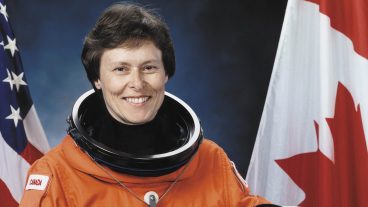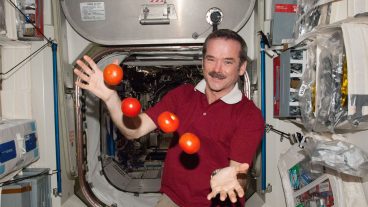50 years ago, Apollo 11 was heading to the Moon where Neil Armstrong would take the historic “small step” that would turn into a “giant leap” for humanity. We spoke with veteran NASA astronaut Nicole Stott about this landmark event and what it meant to her as an individual and to our society as a whole.
Where were you when you watched the Apollo 11 moon landing? How did this moment influence your choice to pursue a career as an astronaut?
I was six years old and was with my family in Clearwater, Florida. I have a vivid memory of sitting in front of our black and white television and eating a grilled cheese sandwich as we waited for Apollo 11 to land on the Moon.
Even then, I remember knowing that this was something extraordinary, something that was making the seemingly impossible possible.
We all sat in awe as Neil Armstrong and Buzz Aldrin landed on the moon. Later that night, my parents woke me and my sister to watch them make those first steps on the Moon. The last thing I remember from that night was walking outside and looking up at the moon. We were honestly a little overwhelmed by the idea that there were people there and Mike Collin was orbiting it.
For me, this mission was one of awe for sure, but it was a long time before I thought that being an astronaut was something I could even consider. For the longest time, I thought that “astronaut” was one of those jobs that only special people got to do. Why would they pick me?
I think my greatest inspiration was my parents who shared what they loved with me. My parents are both very creative and my dad loved to build and fly small airplanes. I developed a love for it as well and wanted to know how things fly as well and I quickly discovered that if I wanted to know how airplanes fly, why not rocket ships as well?
I was very fortunate to have the Kennedy Space Center across the state when I was growing up and right down the highway from where I went to university. I definitely wanted to apply what I’d learned to working on the Space Shuttle program. I was very lucky to be hired as a NASA engineer doing just that.
It wasn’t until much later, after I had been working already as a NASA engineer at the Kennedy Space Center for about nine years, that I started to consider the possibility of applying for the astronaut corps. I had seen astronauts coming through and preparing for their spaceflights as I was helping get the spacecraft ready for them. I finally realized that 99.9% of an astronaut’s job is not flying in space, at least 80% of it was what I was already doing as a NASA engineer.
After speaking with several people who I considered to be mentors, they encouraged me to apply. I’m very thankful for their encouragement. I don’t think I would have picked up the pen and filled out the application on my own.
I try to let kids know that there really are things we have control of — like filling out the application. No one else can do that for us. Not doing it is just denying ourselves something we might be dreaming of without even putting ourselves in the running. It’s amazing how we can self-doubt ourselves right out of something.
How do you think society has changed because of this event?
I think Apollo was a program that was profound in many ways — certainly for demonstrating that very complex and seemingly impossible things are possible when we have a common, greater good mission and when we really commit.
I think Apollo 8 crewmember Bill Anders summed it up the best when he said, “We came all this way to explore the Moon, and the most important thing is that we discovered the Earth.” When the Apollo 8 crew orbited the Moon and when the Apollo 11 crew set foot on the Moon, all of society was given the opportunity to see who and where we all are together in space. To see the home that we share together.
I’m hoping as we celebrate this 50th anniversary we will once again reflect on that reality check that Apollo shared with us all — that we all live on a planet, that we’re all Earthlings, and that the only border that matters is the thin blue line of our atmosphere that blankets us all.
What do you hope or expect to see happen in the next 50 years of space exploration?
The International Space Station (ISS) has shown us that 15 countries can come together and peacefully and successfully work together to build the ISS in space, and to work as a joint crew together in space and as the tens of thousands of people together on the ground in support of the program.
I hope that we will see this international cooperation grow so that we can explore more. That we will see it continue as we establish a permanent settlement on the Moon with a focus on improving life on Earth and explore further off our planet. And hopefully that we will be on our way to Mars and establish our presence there.
A veteran NASA astronaut, Nicole Stott has made two spaceflights and lived 104 days in space on both the Space Shuttle and the International Space Station.
She has dedicated her life to sharing her spaceflight experience and the beauty of Earth with others. She believes that sharing the orbital and inner space perspectives has the power to increase everyone’s appreciation of and obligation to care for our home planet and each other.
Interested in learning more about Nicole and what she can bring to your next event? Email us at [email protected].




